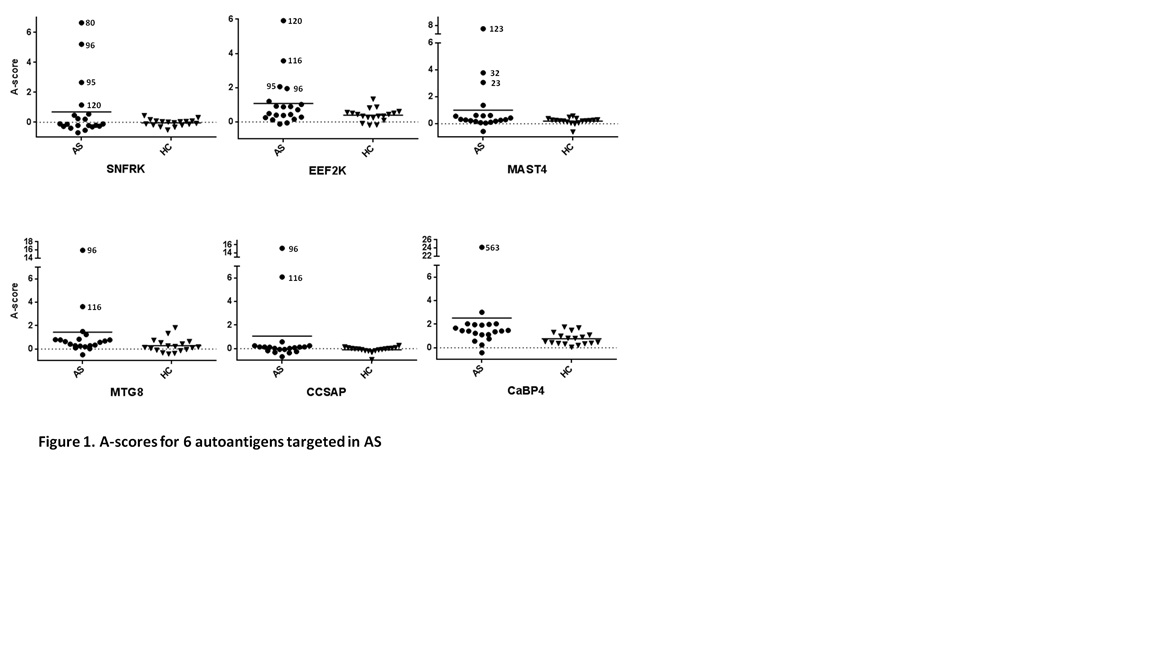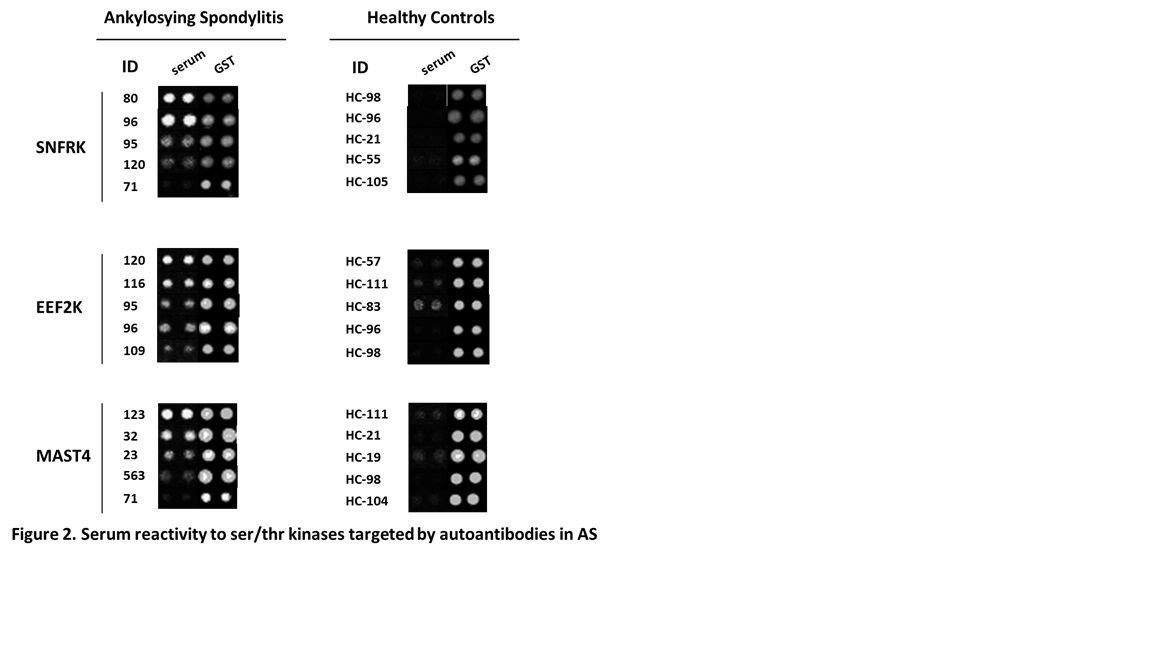Session Information
Session Type: Abstract Submissions (ACR)
Disclosure:
M. Presby,
None;
M. J. Soloski,
None;
J. A. Flynn,
None;
C. O. Bingham III,
None;
M. M. Ward,
None;
G. H. Louie,
None.
« Back to 2014 ACR/ARHP Annual Meeting
ACR Meeting Abstracts - https://acrabstracts.org/abstract/identification-of-novel-autoantibodies-in-patients-with-ankylosing-spondylitis-using-human-protein-microarray/


